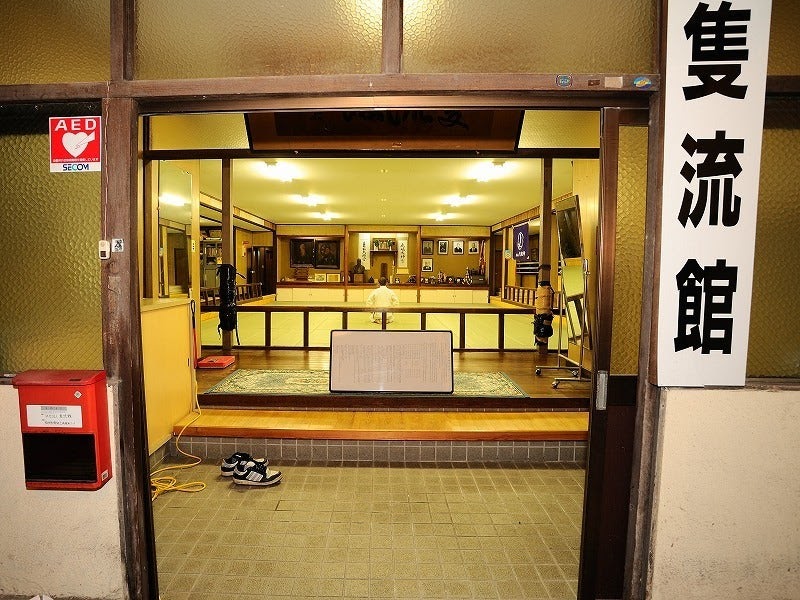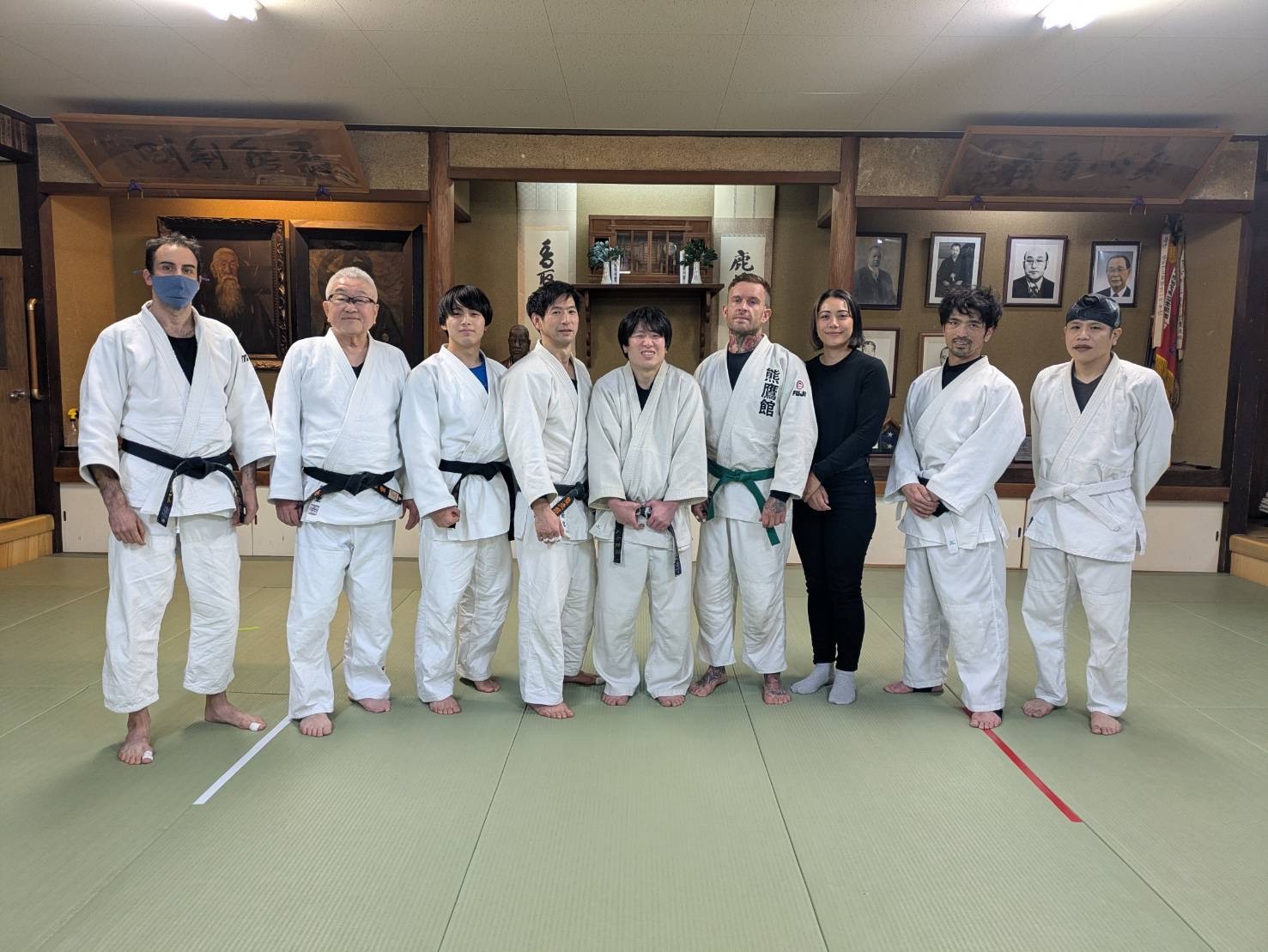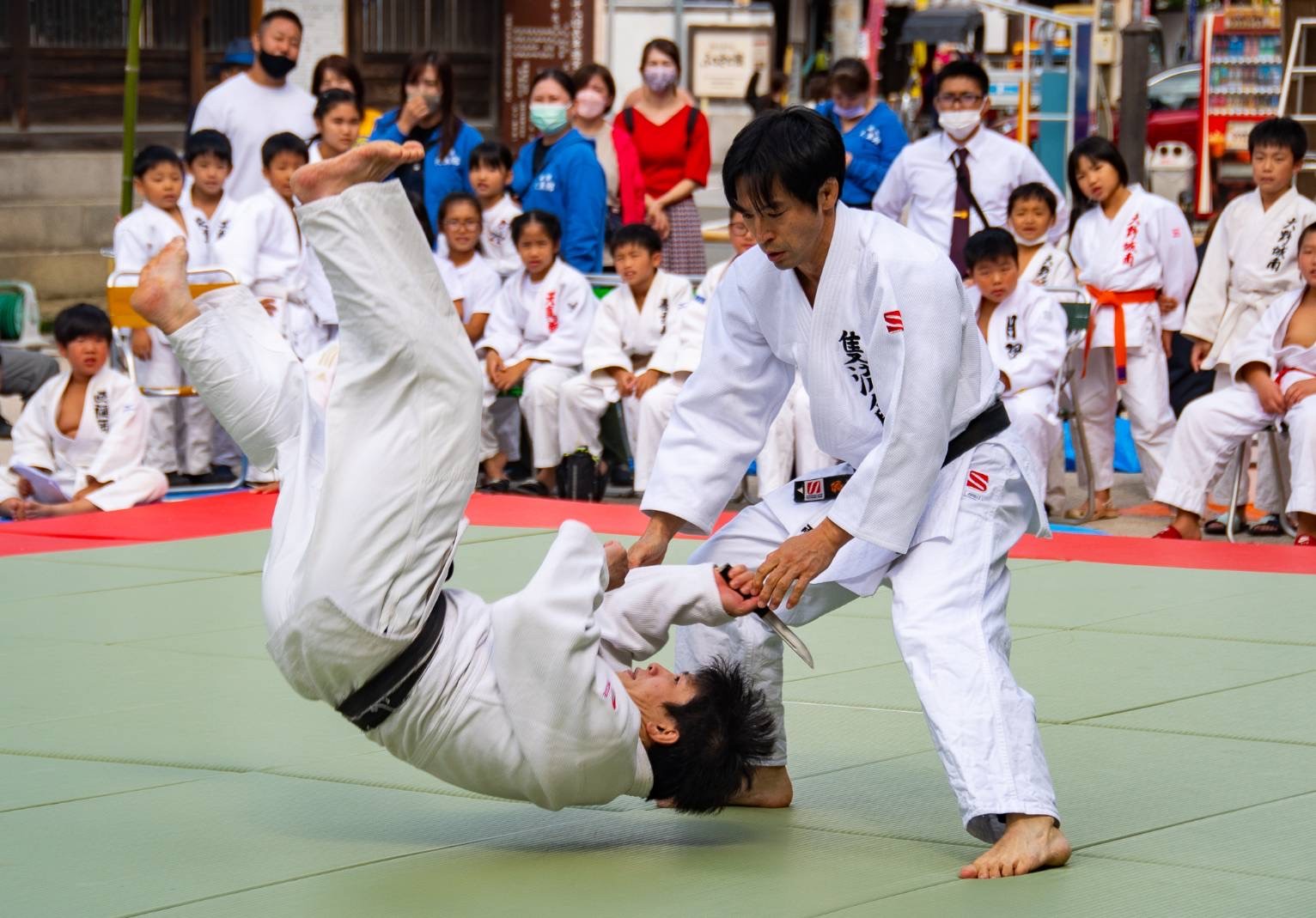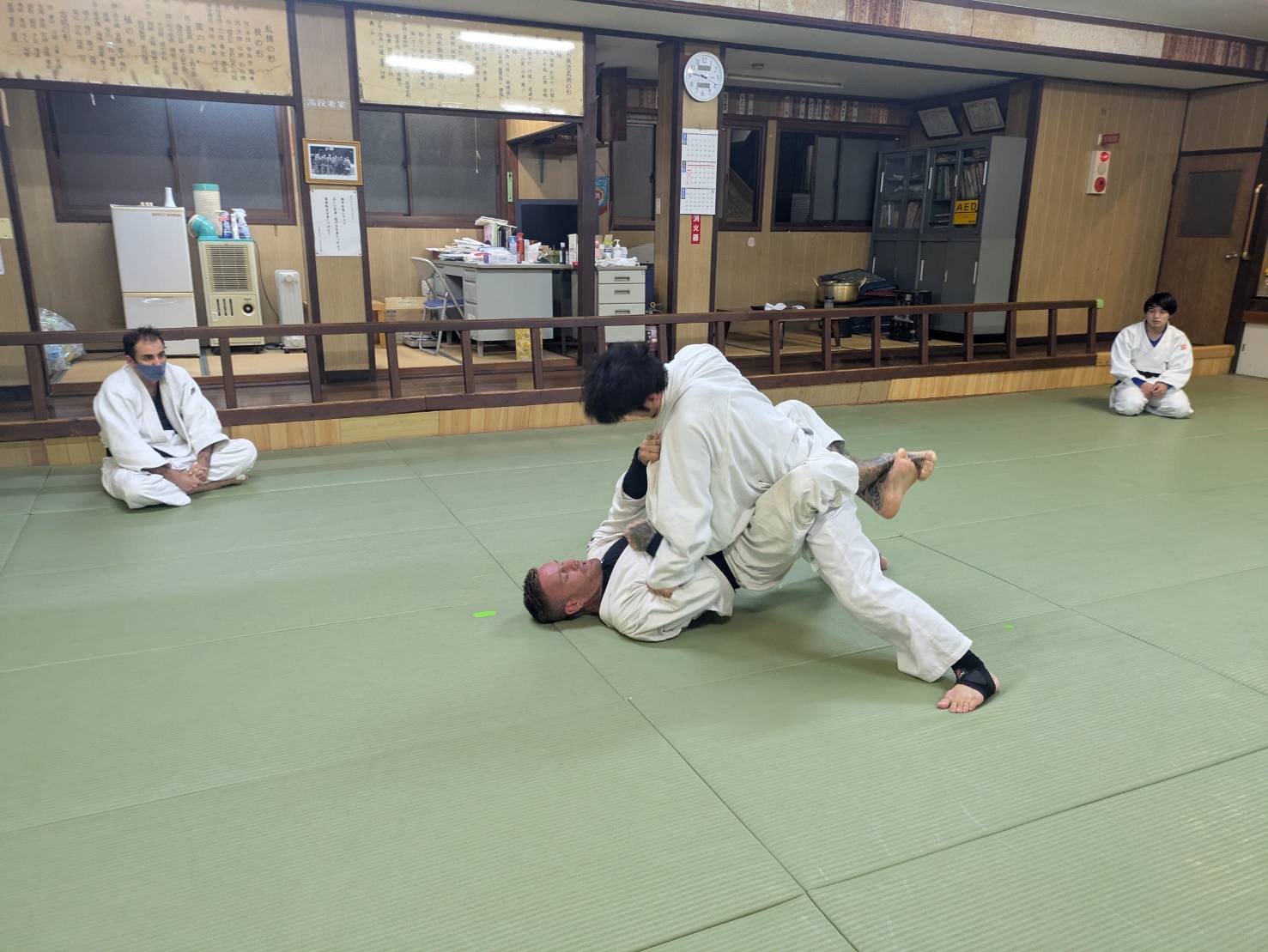Sekiryukan dojo is a judo and Japanese jiu-jitsu dojo in Fukuoka city Japan. When I lived in Japan I trained at Sekiryukan. Sekiryukan dojo has a long tradition of training judo and Manzo Shitama sensei of Sekiryukan is the headmaster of sosuishi-ryu jujutsu.

I found Sekiryukan while in Fukuoka training BJJ and looking for a place to train judo. Unlike I first assumed (and I think most would since Japan is the birthplace of judo) it was not easy to find places where adults could train judo in Japan. There are surprisingly many more places for adults to train BJJ. However, judo is practiced in the school system as a sport like basketball and soccer is in the USA, but I only found two places in Fukuoka where adults could train judo.
Sekiryukan helped me get a cultural visa to stay in Japan and practice judo. It's an off the beaten path kinda place. Unlike CCSF in San Francisco where I started training judo, it's not in a fancy new place with olympic style mats, but it's an old down to earth one with a long history of training Japanese jujutsu and it is the head school for the sosuishi-ryu style.

I primarily trained judo at Sekiryukan, but they do have some other Japanese jiu-jitsu classes and are well known for their Sosuieeshi-ryu jujuitsu. Here is Amamiya-san and Shusaku sensei doing an exhibition of knife fighting.

For the judo classes often they don't have a lot of people training, but sometimes they have some special events like for example the 1000 man battle which it is famous for where many people will come to train and try to fight 1000 times in a day.
Judo and jiu-jitsu classes at Sekiryukan
The judo classes are held on M,W,F nights and the Sosuishi-ryu classes are on T,TH. The training here is fairly informal. They do not or did not have an extensive warm up like other places I trained. You can warm up on your own and then they usually do a fair amount of newaza towards the beginning of classes which is good because some judo schools don't.

When I trained at CCSF for 5 years they would do newaza in the beginner classes, but not in the advanced classes. I think newaza is crucial. While the current sport rules of judo don't allow for much newaza the older form of judo did. Getting good at it will give you an advantage competitively and in terms of self defense.
After newaza we would train stand up tachiwaza and then randori. Good people train at Sekiryukan. Some people train there all the time and others come in occasionally. I trained a lot with Amamiya-san, Tsukomoto-san and Shusaku sensei. They seem to welcome foreigners there and some other foreigners would train there too.
While in Japan I was able to participate in some special events too like the shodan shinsa judo black belt competitions, watch a Kosen judo competiton between the imperial universities in Japan and even train Kosen judo once at Kyushu university. Kosen judo is different from Kodakan judo in that it specializes in ground work (newaza) vs. the typical stand up. It was quite cool.
Sekiryukan also took me to a high school in Fukuoka to train judo too once. It was cool and those kids were pretty good.
Contact Sekiryukan
If you are interested in training at Sekiryukan in Fukuoka you can contact SEIBUKAN dojo in New York first as they handle coordination. This dojo is located in Hakata-ku, Fukuoka city, Japan.
How to stay in Japan and train?
You would need either a job or a source of income from outside of Japan. Most foreigners can stay in Japan for 3 months on a tourist visa and for stays longer you would a different type of visa like: working holiday visa, humanities visa (teaching), cultural visa, etc.
A cultural visa in Japan does not permit you to work in Japan. You have to have your own income from outside of Japan or a significant savings. If you need a job and you are a foreigner teaching English in Japan is a popular option. Sekiryukan helped me obtain a cultural visa to stay in Japan for over a year until COVID hit.
Related:
- How to stay in Japan and train judo (3 ways to do it)
- More pictures of Sekiryukan
- Vlog: training judo at Sekiryukan dojo
- Written by: Ian Leahy
